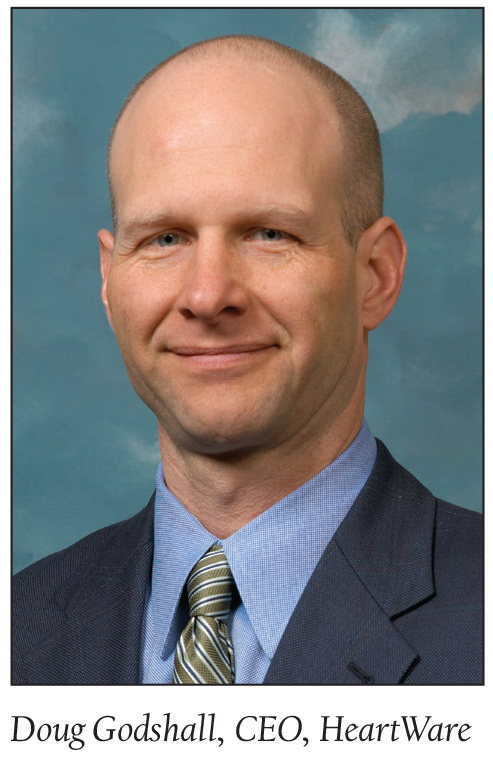Medtronic Plans to Expand Heart Failure Portfolio
After acquiring HeartWare International, Inc. for $1.1 million, Medtronic recently announced that it plans to expand its portfolio of diagnostics tools, therapies, and services for patients suffering from heart failure. Among other products, HeartWare designed the world’s smallest full support ventricular assist device (VAD)—its flagship product—to reduce surgical invasiveness and has developed many products in this field.
“Combining the unique capabilities of the HeartWare team, which has been entirely focused on mechanical support technologies, with the broad strength of the Medtronic organization provides a unique opportunity to enhance growth in the mechanical circulatory support market,” HeartWare CEO Doug Godshall said in a statement. Although earrings aren’t expected until the third year, the goal is to hasten the evolution of HeartWare products and equip the Medtronic’s Cardiac Rhythm & Heart Failure division.
Industry Giants to Form Bioelectronic Company
To combat a myriad of chronic diseases including arthritis, diabetes, and asthma, GSK and Verily Life Sciences LLC (formerly Google Life Sciences), an Alphabet company, recently entered an agreement to form Galvani Bioelectronics. The new company will research, develop, and commercialize bioelectronic medicines—an area the GSK has been interested in since 2012.
Bioelectronic medicine uses miniaturized, implantable devices that can modify the distorted electrical signals that pass along nerves in the body, including the irregular or altered impulses that occur in many illnesses. Dr. Moncef Slaoui, GSK’s Chairman of Global Vaccines, who was instrumental in establishing
GSK’s investments in the field of bioelectronics, will chair the board of the new company. He said in a statement, “This agreement with Verily to establish Galvani Bioelectronics signals a crucial step forward in GSK’s bioelectronics journey, bringing together health and tech to realize a shared vision of miniaturized, precision electrical therapies.” Galvani Bioelectronics will be headquartered in the UK. GSK will hold a 55% equity interest in the new jointly owned company and Verily will hold 45%.
AbbVie Files Patent Infringement Lawsuit Against Amgen
After a FDA Advisory Panel unanimously backed approval of Amgen’s Humira biosimilar, ABP 501, AbbVie recently filed a lawsuit to block the biosimilar from entering the market. The lawsuit alleges that Amgen infringes at least 10 patents. But Amgen isn’t the first attempt the drug originator has faced in relation to the marketing of Humira biosimilars.
Back in May, Coherus BioScience brought a challenge to the U.S. Patent and Trademark Office against a patent for Humira held by AbbVie. However, AbbVie CEO Richard Gonzalez says the company will take steps to prevent Humira biosimilar launches until 2022, if not longer.
Recent Brexit Creates Fear at Life Sciences Companies
As the effects of Brexit become clearer, life sciences experts are fearful of a negative outcome for the UK’s pharmaceutical companies, who expect an impact to cutting-edge medicine access. The Association of the British Pharmaceutical Industry (ABPI), the BioIndustry Association (BIA), business leaders, and life sciences leaders previously warned the government of the riskiness of the decision.
However, since Brexit went through anyway, ABPI’s CEO Mike Thompson, said in a statement, “This creates immediate challenges for future investment, research, and jobs in our industry in the UK. With that being the case, we are committed to working closely with the government to agree on what steps need to be taken to send a strong signal that the UK is open for business.”





